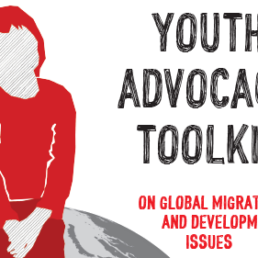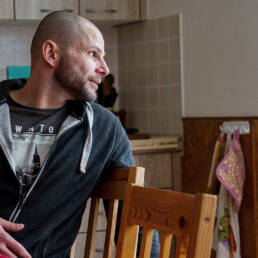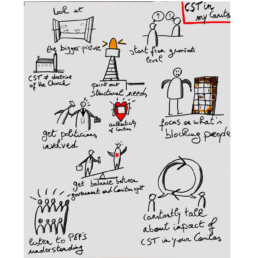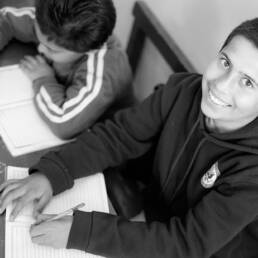Author
Charel Krieps
Humanitarian Officer
Caritas Europa
Caritas in Europe continues strengthening its culture of safeguarding across their network. One step of this journey is the Safeguarding Learning Path launched by Caritas Europa in autumn 2021.
A first module on how to establish an organisational culture of safeguarding took place online in October. Last week the participants came together in Bratislava for the second module, focussing on two essential elements of safeguarding: feedback and complaints-handling mechanisms (FCHM), and safe recruitment.
Most Caritas organisations already have policies and procedures in place that allow them to gather feedback and complaints from the communities they work with. The participants exchanged on ways to establish new and organisation-wide FCHM and to strengthen existing ones. The aim is to make our feedback and complaints-handling mechanisms as inclusive and reactive as possible. The trainers shared tools and good practices on how to identify appropriate feedback channels through which people can submit their feedback, on how to inform communities about the possibility to complain, but also on how staff needs to respond to both general and sensitive complaints. As Caritas, we encourage all people we serve to provide feedback as it allows us to improve our programmes and to tackle misconduct by staff and volunteers as soon as it is reported.
The last day of the three-day module zoomed in on safe recruitment, i.e. the commitment of Caritas to make sure that our staff and our volunteers are suitable to work with children and vulnerable adults. Safe recruitment is an essential step for an organisation that takes safeguarding seriously, because it allows us to create a first barrier to persons with ill intentions or whose behaviour is not in line with our Code of Conduct. Safe recruitment measures include safeguarding disclaimers in job adverts and job descriptions, asking the relevant questions during job interviews, and doing proper reference checks. All staff and volunteers need to sign and receive an induction on essential behavioural policies such as the Code of Conduct and the Safeguarding Policy. In Bratislava, the participants also reviewed the SCHR Misconduct Disclosure Scheme and the Caritas Internationalis Management Standards as means to promote safe recruitment practices in Caritas.
This second module of the Safeguarding Learning Path was co-facilitated by Catholic Relief Services (CRS) and Caritas Europa secretariat. The participating organisations were staff from Caritas in Armenia, Belgium (Caritas International), Denmark, France (Secours Catholique), Georgia, Greece, Malta, Moldova, Scotland (SCIAF), Slovakia, Switzerland, Ukraine (Caritas Spes), as well as from the Caritas global secretariat Caritas Internationalis and the regional secretariat for the Middle East and North Africa (Caritas MONA). All Caritas staff can find the presentations and other materials on the Caritas intranet Baobab.
The third and last module of the Safeguarding Learning Path will cover safeguarding investigations and take place in November 2022.












